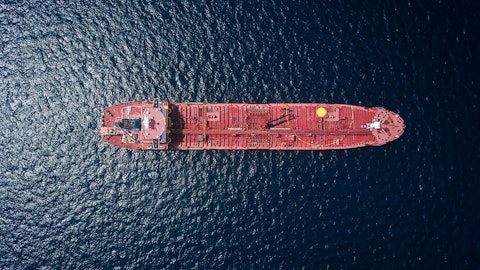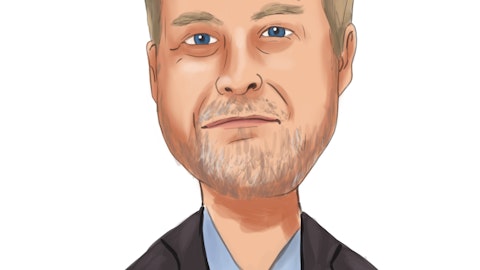Jack Atkins : Okay. That makes sense.
Mark Rourke : Yes, another way, Jack, we don’t believe there’s any structural impediments to getting to a more efficient box turn. And that’s what we’re really focused on here is asset productivity across both our truck business and certainly, our intermodal container fleet.
Jack Atkins : And just to follow up on that, because I would imagine that the incremental margins as that box turn and just overall productivity improves would be pretty meaningful. Is that the right way to think about it?
Mark Rourke : Absolutely. It’s a powerful flywheel.
Operator: Our next question comes from Jon Chappell with Evercore ISI.
Jonathan Chappell : Jim, [I hate to] keep harping on Intermodal, but I just want to understand kind of the strategy backward-looking, so to speak, like your revenue per order actually held in a little bit better, I think, on a year-over-year basis, on a sequential basis than most of your peers. But the 14% year-over-year decline in orders was quite high. Are you kind of being very price disciplined and pushing away business even given some of the macro challenges because you want to keep the base higher when that cyclical recovery does start?
James Filter : Yes. So what I’d characterize our volume decline is primarily being pressured due to West Coast import volume driving the majority of that, but also as we’re remaining disciplined as we go through these bid events. I wouldn’t say that we’re pushing volume away, but we’re also not willing to go to the very bottom of the market that would put us in an unsustainable level. And that gives us better opportunities to grow long term in a sustainable way.
Jonathan Chappell : Okay. That makes sense. And then a quick follow-up. Mark, you mentioned again, that Power Only has been resilient to the cycle. You’ve seen an entire cycle now through your build-out of Power Only from peak to trough. Is there any way to quantify what the margin difference has been or maybe the stability of the margin from the Power Only offering versus the traditional brokerage as logistics has fully cycled?
Mark Rourke : Yes. Look, I think I understand your question, Jonathan. It’s certainly — we believe we’re getting a return on the asset that we’re providing the trailer asset, in this case, in Power Only over top what we would normally extract on a third-party complete move in brokerage, if you will. And so the return profile, we believe, is durable. We still have the same pressures on pricing that occur in any other parts of the business or the same opportunities that get created on any other part of the business to take advantage of. And so we would consider the customer acceptance, the carrier acceptance, our ability to integrate now more efficiently and effectively, both within our dedicated offering as a supplemental capacity type and also within our network configuration and how we go to market with customers.
And we just continue to get better and better at that. And so we think this is a long-term solution and a long-term contributor to our network offering within our trucking operations. Even though it’s third party and it sits in our Logistics business, we’re much more integrated in how we go to market.
Operator: Our next question comes from Jason Seidl with TD Cowen.




